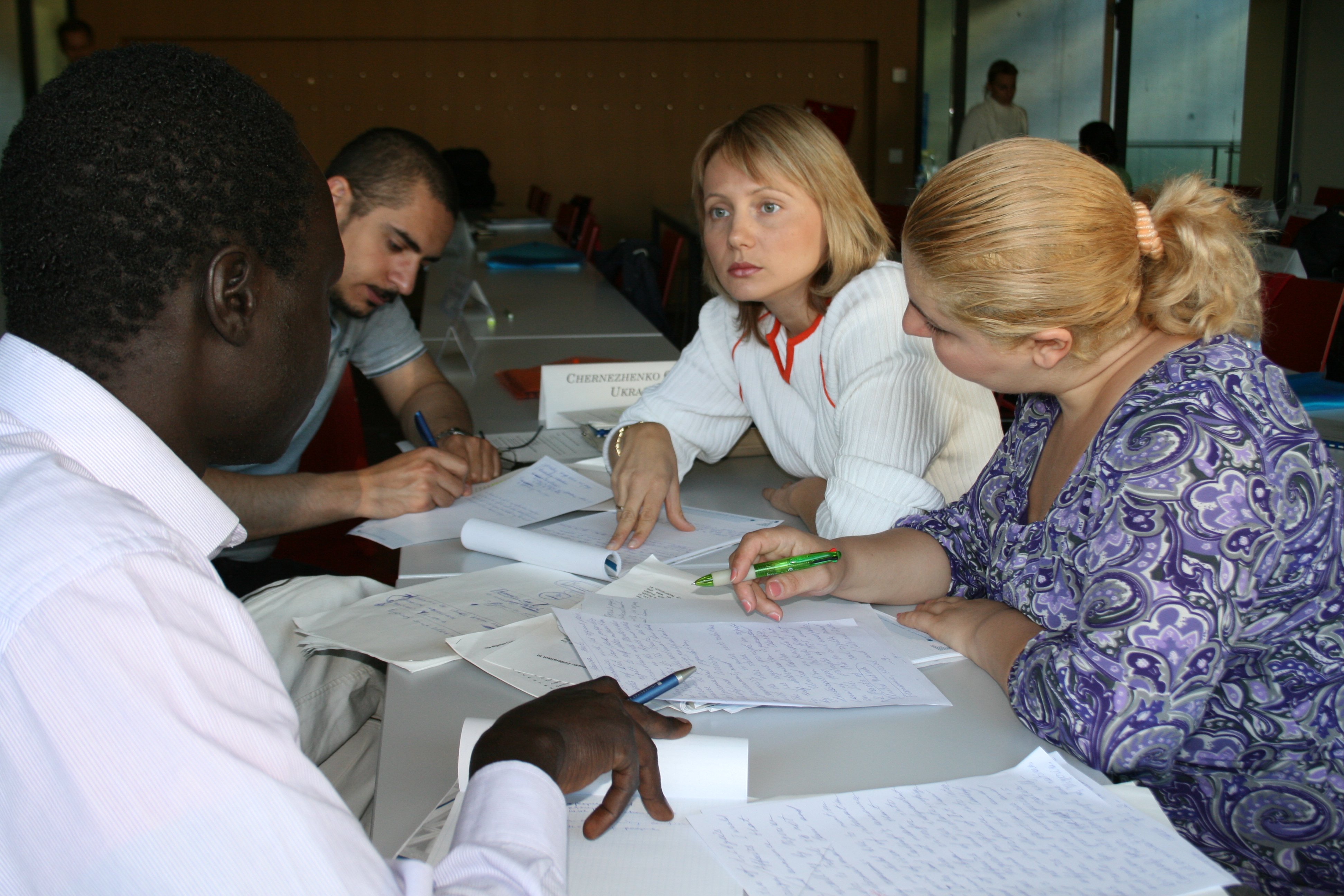
Fribourg provides lessons in federalism

The map of the world is a work in progress, with 34 new states emerging since 1990. But can every group’s wish to strike out alone be accommodated, and if so how?
The answer to that loaded question depends on your political perspective and with 20 nationalities represented at the Institute of Federalism summer university in Fribourg, the flags of national interest are temporarily set aside for a chance to listen and learn.
The summer university is aimed at advanced students of law, political science, economics or journalism and young professionals keen to improve their knowledge of federalism, decentralisation and conflict resolution.
swissinfo.ch visited at the half-way point of the three-week course – a mix of lectures, case studies, reading and group work – and found the young participants debating the future of Nigeria in the morning and hearing about Sri Lanka’s post-independence political problems in the afternoon.
Under the guidance of Nigerian professor, lawyer and human rights activist Jibrin Ibrahim, the participants were challenged to defend a position in which most of them, excluding the Nigerians present, had no emotional involvement.
There was room for humour and political gymnastics as the groups took a step back and presented, partly reasonable, partly outlandish solutions for another country. For those who face real secessionist dilemmas at home, the exercise seemed close to therapeutic.
Although federalist states are still in a minority worldwide, the potential for the broader application of federalism is great, according to Ibrahim.
“The reality of the contemporary political world is that most countries are composed of federal societies, however federalism as a system of government based on democracy, constitutionalism and respect for the rights of citizens exists only in a few countries,” he said.
Swiss model
Hence the relevance of Switzerland as a well-functioning example with a long history and the apt location of Fribourg, which sits right on the French-German cultural divide.
As Eva Maria Belser, director of the institute’s international centre, said: “What is so attractive about Switzerland is the linguistic, cultural, economic and social diversity. That you cannot find in Australia and the United States. Many countries who have emerged from internal conflict are particularly interested in the Swiss case.”
Guest lecturer Jayampathy Wickramaratne of Sri Lanka, who spoke about the intransigence of majorities, said it wasn’t a question of replicating Switzerland but rather learning from it.
“When the argument was brought that Sri Lanka was too small for devolution, we said look at Switzerland. You can only learn from other countries and Switzerland is a very good example of small units being viable.”
Learning from mistakes
Wickramaratne comes from the majority Sinhalese community but he is in favour of power sharing with the Tamil minority. He appreciated the opportunity to work with such a diverse group, “so that they can learn from our mistakes”.
“Some majorities come to terms with the reality earlier than others and therefore are willing to accommodate but some are very stubborn and refuse to share power. In countries where such majorities are present there is a risk of secession – like Sri Lanka now, like the Serbs in former Yugoslavia.”
“Central power sharing is good, central power sharing alone will suffice when you have geographically dispersed minorities, but as soon as you have a geographically concentrated minority, there is a demand for devolution,” he added.
Course participants from Kosovo, Sudan, Nepal, China and the Philippines, to name but a few, are bound to take away fresh ideas about possible outcomes for countries facing the choice of sharing power or losing territory.
As Ibrahim concluded: “Federalism is very central to political futures, both because many countries are afraid of it and its implications but also because many others think it provides solutions to numerous political and social problems they have in their society.”
The Summer University at Fribourg’s Institute of Federalism is a three-week course covering the current state of scholarship and practice in the area of federalism, decentralisation and conflict resolution.
Now in its 23rd year, the course is aimed at advanced students of law, political science, economics or journalism and young professionals.
The costs of the programme (tuition, course materials, accommodation with full board) are covered by the Institute of Federalism with the support of the Swiss Agency for Development and Cooperation.

In compliance with the JTI standards
More: SWI swissinfo.ch certified by the Journalism Trust Initiative


























You can find an overview of ongoing debates with our journalists here . Please join us!
If you want to start a conversation about a topic raised in this article or want to report factual errors, email us at english@swissinfo.ch.